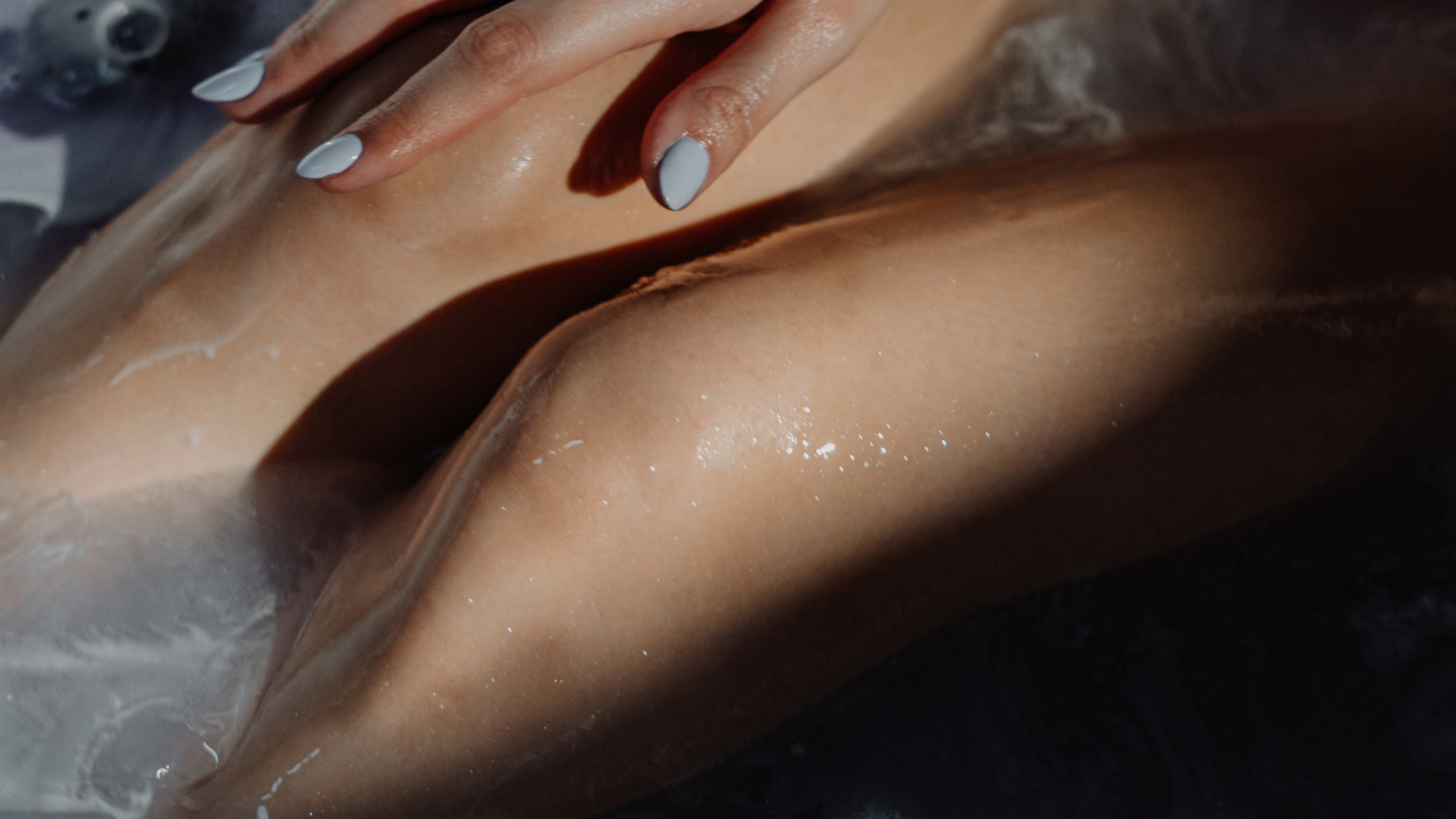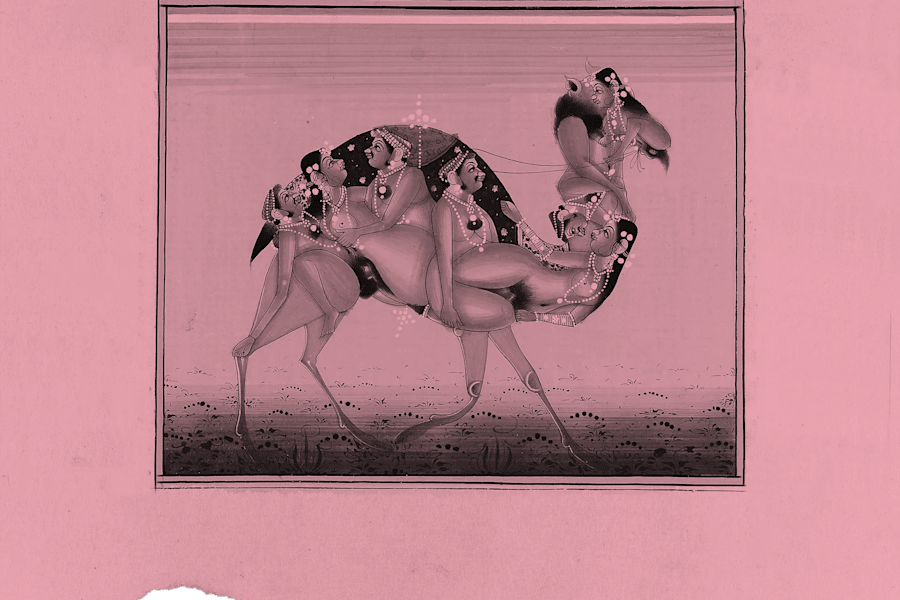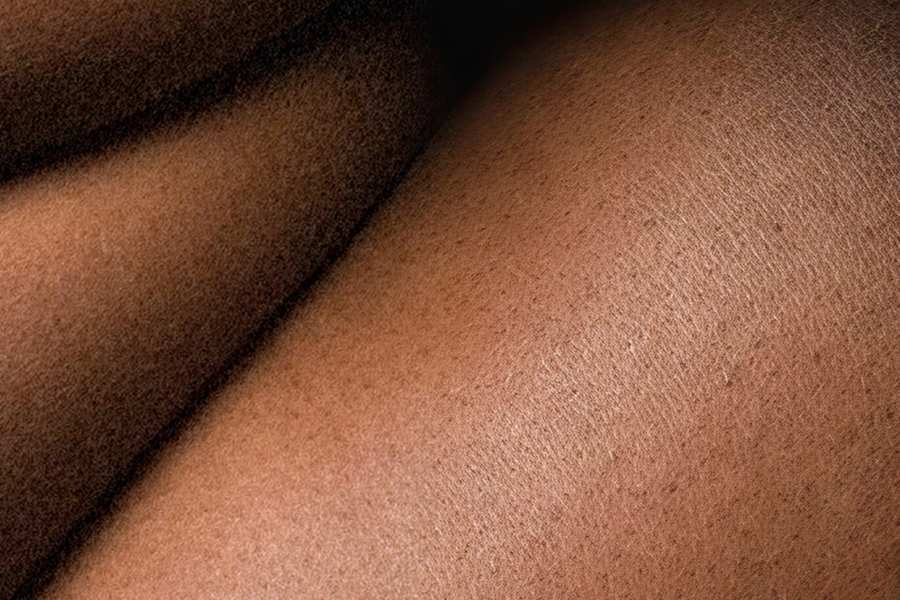Erogenous zones: pressure point

Melvin Backman finds that so much romance comes off the cuff. On shirtsleeves, buttons, wrists, and other symbols of freedom and restraint.
Introducing Erogenous Zones: a column about exploring, interpreting, and appreciating the material, tactile, and sensual dimensions of pleasure. First up is Melvin Backman writing about the wrist making itself known under a buttoned-up shirt sleeve.
A classic means of applying a scent involves spritzing a little on the skin just below your palm, rubbing it together with its corresponding patch, and bringing both up to your neck. This is to invite a friendly nose in, sure, but so much romance comes off the cuff. If people speak with their hands, then the voice must emanate from the wrist. And when your shirt comes off, the smell will linger there. The next time you pass a rose bush, run your sleeve in it. Allow the fragrant oils of the thing to mix with your own and embed themselves in the weaving of your shirt. Arc it high and let the fragrance waft. The skin and the plant are the genesis of the thing, but the cuff is where the memory establishes itself enough to persist.
At one point, the shirt was purely underwear to be exposed only in moments of great exertion, or the cuff was simply the catchpoint for a wealth of fabric spilling off the sleeve, held in place with bits of ribbon and lace woven through special holes stitched to allow the egress of delicate fabrics. Depending on the reigning moralities of the era, it slipped up and down the wrist, in and out of the jacket. Laborers had to hide theirs for practical reasons, and the wealthy were expected to flash a quarter—maybe even a third—of an inch to make their status known. Writing on Has Holbein the Younger’s “Sir Thomas Moore” (1527), Colm Tóibín draws our eye toward the “opulent material of the sleeves,” on the politician’s tunic, but peeking out from underneath those luxurious folds are a few gauzy white folds that suggest an interior layer that’s even more luxurious than an outsider can glimpse.
Have you ever pulled on a newly laundered shirt and realized the disappointment of hovering too near the forearm, coming up agonizingly short? It’s a false step happening above the waist. Suddenly air is touching skin it’s not supposed to touch, the eyes can’t believe what they’re seeing, the shoulder hunches towards the neck reflexively in the hopes that this is all some kind of misunderstanding. What a tiny misery!
When the shirt is too big, though, and the cuffs slide past your carpals, past your knuckles, grazing your fingertips? Envelopment. You’ve been swallowed. Overwhelmed. Sheltered. When the sleeve blows open around the end of your arm, there’s a wonderful bit of delicacy in the gesture. You don’t have to be covered to be secured. And if you should wonder if you’re getting what you need out of it, a light kiss will remind you that you are. Of course, the flip side to such wanton swanning is the risk it invites. There’s no control, so a stain may find you more easily should you be reaching for something that will dirty you.
Wong Kar Wai’s entry into the Eros series may be titled The Hand, but it’s all about that fulcrum: the first time we see Miss Hua touch Xiao Zhang, the poor young man was a tailor’s assistant without so much as a jacket, and his rolled-up sleeves leave his poor wrists as exposed as he is. Hua uses hers to bring clients under her power. Zhang uses his to create beautiful dresses. Later, when his hands have become more skillful and the power imbalance between them has shifted his way, he takes her measurements by feel, and his wrists are garrisoned in French cuffs.
Pick up the pen and drag it across the page. Again. Again. The threads fray, all that rubbing. The sleeve-end comes apart, grows wispy. There was a time that the cuff, starched stiff, was detachable from the rest of the shirt; it would rub up against the body so much that it was more sensible to wash it separately or, in the event of constant friction, replace it entirely. A cowboy’s shirt will have pearl buttons that snap his cuffs closed. The soldier’s shirt gave it this idea, and in cases of particular abrasion—coming from all that rubbing and rustling and manifesting of destiny they were doing out west—a bonus little leather wrapper protects and secures.
A tight cuff is restricting, naturally. You can’t flex away from it and instead must submit to the cloth. It could be suffocating, if you choose to look at it that way. Or maybe it’s simply bracing. It takes a bit of locking down to fully empower a shock of vigorous movement, should you need one. Witness Christopher Moltisanti, offering himself up for inspection on the day he was to become a made man, shooting his cuffs. He throws his arms forward and lowers his gaze towards a couple slips of pale yellow before raising it in search of approval. Likewise Gianni Agnelli, a man of prodigious opulence, used to fasten his watches over the cuff because the shirts he got made were too close to the wrist to allow his timepieces next to his skin. Vanity Fair once called the habit one of his “studied fashion eccentricities,” but let’s call it what it is: a willing concession to a firm grip.
The shirt is a thing once meant to remain unseen that we now see all the time. Bunny Kay, a Playmate, once wrote that the cuffs and collar of her costume made her feel like she was wearing a shirt, even though the Playboy bunny costume doesn’t include one. I like to keep myself to myself and actively recoil at the possibility of being laid bare. An unbuttoned cuff suggests a yearned-for freedom. A fastened cuff offers assuring restraint.
“Fit” is an elastic notion; the line between “I meant to do that” and “I’ve certainly made a mess of things, haven’t I?” is both porous and malleable. A shirt can crawl up your armpits or dance its seams across your clavicle; tight or loose it’s whatever. But the thing that affords some degree of correctness is the cuff—under a suit, a skim of white cotton or French blue silk is the thing that says mmhmm.


